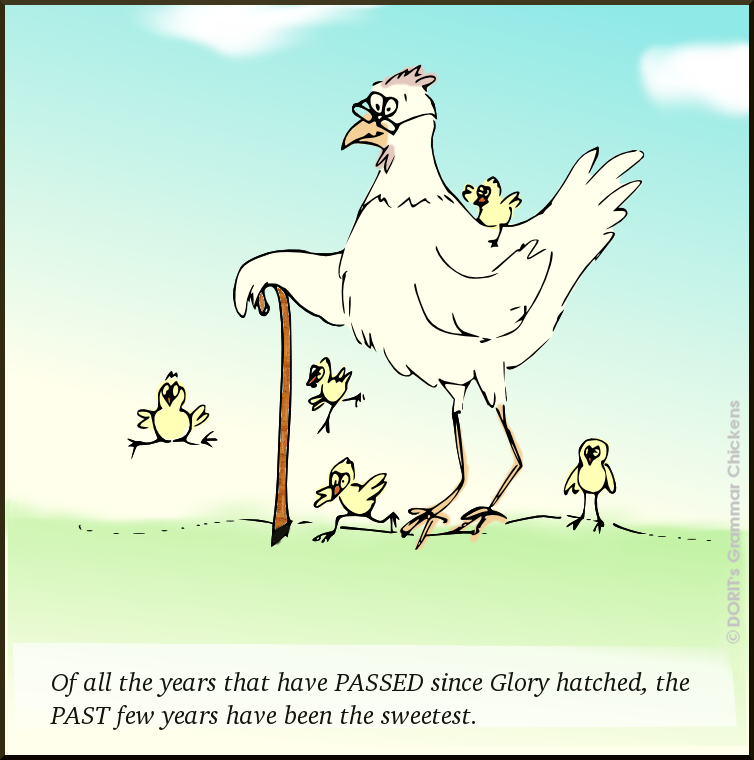PASSED is the past tense and past participle of the verb “to “pass.” It means to move on or ahead; proceed. It can function as both a transitive and intransitive verb. For example,
“The car passed me in the left lane.”
“I unknowingly passed by her in the crowd.”
PAST has a several meanings, such as (1) a noun meaning the time before the present, and (2) an adjective meaning “completed,” “finished,” and “no longer in existence.” It can also function as an adverb and preposition.
The verb TO PASS usually implies movement of some sort and can sometimes cause confusion because it often means to move past. For example, “The hunter passed by the deer without even seeing it.”
Some people will mistakenly write a sentence like this as, “The hunter past by the deer without even seeing it.”
In doing so, people confuse PASSED (verb) with PAST. If you take a look at the second sentence, you will notice that there is no verb for the subject hunter because past is not a verb; thus the sentence is incorrect.
A good way to tell which word to use in sentences like these is to rewrite them using the present tense. For example, you would rewrite the above sentences as follows, “The hunter passes by the deer without even seeing it.” See how it makes sense?
Another rule to keep track of troublesome sentences like these is that if *a verb indicating motion* is *already* in your sentence, you will always couple it with PAST not passed. For example,
“He passed us by.” BUT” He sailed past us/He flew past us/He ran past us.
The best way to keep track of the differences between these two words is by remembering that passed generally deals with movement and past generally deals with time. You can remember this because passed is a longer word than past and movement is a longer word than time. Also, “past” and “time” both have four letters.

